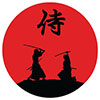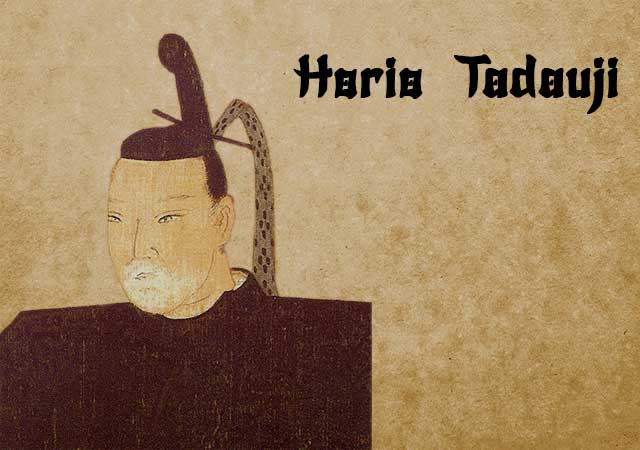
Horio Tadauji hailed from the lineage of Horio Yoshiharu, the inaugural lord of Matsue Castle. Following his father Yoshiharu's incapacitation in a tea ceremony altercation preceding the Battle of Sekigahara in 1600, Tadauji assumed his father's role in Tokugawa Ieyasu's Eastern forces. Post the battle, Ieyasu commended Tadauji for his commendable contributions and granted him 240,000 koku in Izumo Province (Shimane Prefecture).
Before committing to Ieyasu at Sekigahara, Yamanouchi Kazutoyo (Yamauchi Katsutomo) sought counsel from his confidant Horio Tadauji on the best course of action. Tadauji responded fervently and with great reverence, declaring, "I pledge my lands, my castle, my family, my food, my life, all I can give, without hesitation for the Tokugawa cause!" Touched by this, Yamanouchi decided to heed his friend's advice and joined the Eastern forces.
During the pre-battle assembly, Ieyasu received numerous declarations of loyalty, yet it was Yamanouchi's pledge that garnered the most attention. Faced with providing his own response, the less eloquent Yamanouchi simply echoed his friend Horio's impassioned declaration. "I pledge my lands, my castle, my family, my food, my life, all I can give, without hesitation for the Tokugawa cause!" Horio must have been astonished to hear his own words repeated by his less articulate comrade. Ieyasu, pleased with the sincerity and wholeheartedness, commended Yamanouchi for his resolute commitment, earning admiration from other leaders who cheered in approval.
While Horio Tadauji distinguished himself on the battlefield, his friend Yamanouchi played a lesser role, mostly observing from the sidelines. Tadauji succumbed to illness four years after the pivotal battle.
See also
-
Yamagata Masakage
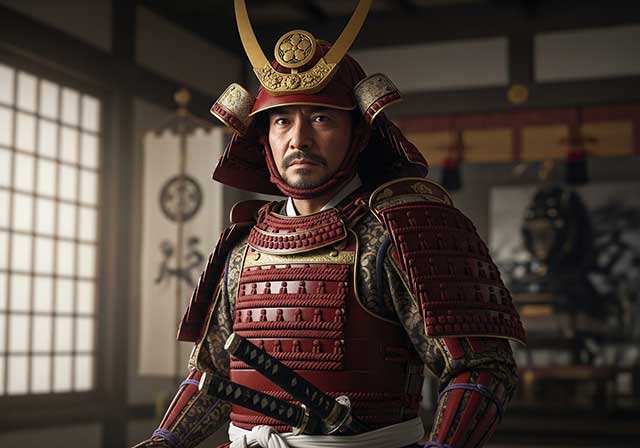
Masakage was one of Takeda Shingen’s most loyal and capable commanders. He was included in the famous list of the “Twenty-Four Generals of Takeda Shingen” and also belonged to the inner circle of four especially trusted warlords known as the Shitennō.
-
Yagyu Munenori
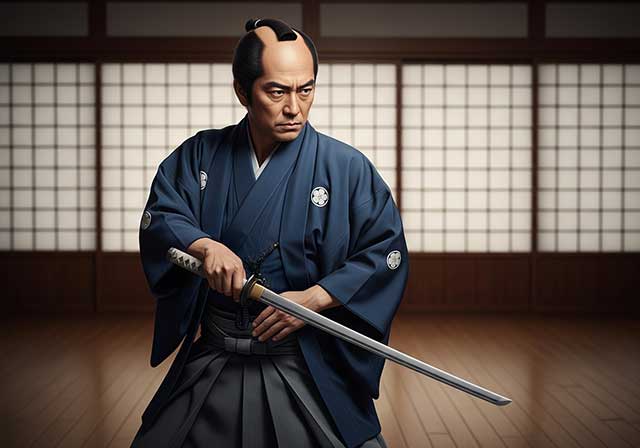
Yagyū Munenori began his service under Tokugawa Ieyasu while his father, Yagyū Muneyoshi, was still at his side. In 1600, Munenori took part in the decisive Battle of Sekigahara. As early as 1601, he was appointed a kenjutsu instructor to Tokugawa Hidetada, Ieyasu’s son, who later became the second shogun of the Tokugawa clan.
-
Yagyu Muneyoshi
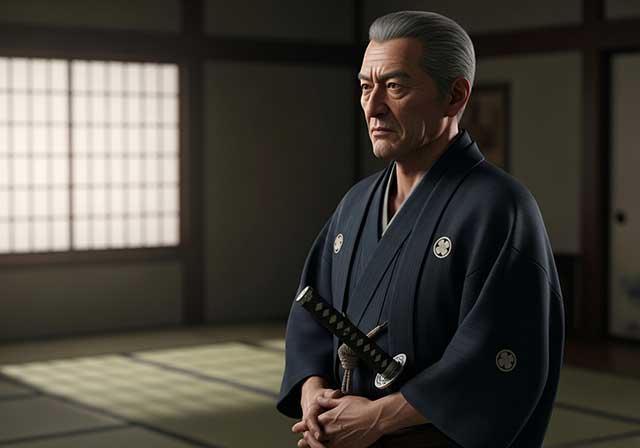
A samurai from Yamato Province, he was born into a family that had been defeated in its struggle against the Tsutsui clan. Muneyoshi first took part in battle at the age of sixteen. Due to circumstances beyond his control, he was forced to enter the service of the Tsutsui house and later served Miyoshi Tōkei. He subsequently came under the command of Matsunaga Hisahide and in time became a vassal first of Oda and later of Toyotomi.
-
Endo Naozune
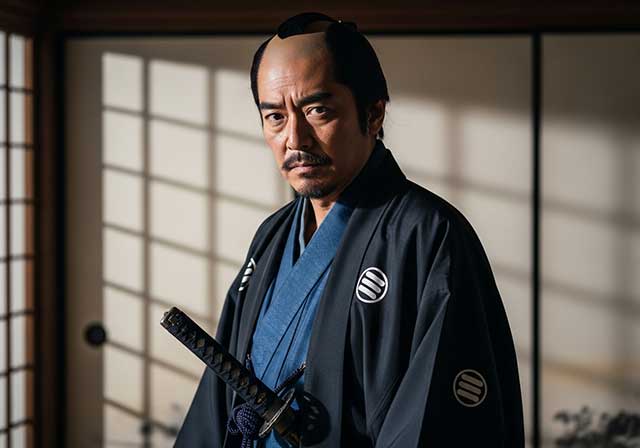
Naozune served under Azai Nagamasa and was one of the clan’s leading vassals, renowned for his bravery and determination. He accompanied Nagamasa during his first meeting with Oda Nobunaga and at that time asked for permission to kill Nobunaga, fearing him as an extremely dangerous man; however, Nagamasa did not grant this request.
-
Hosokawa Sumimoto
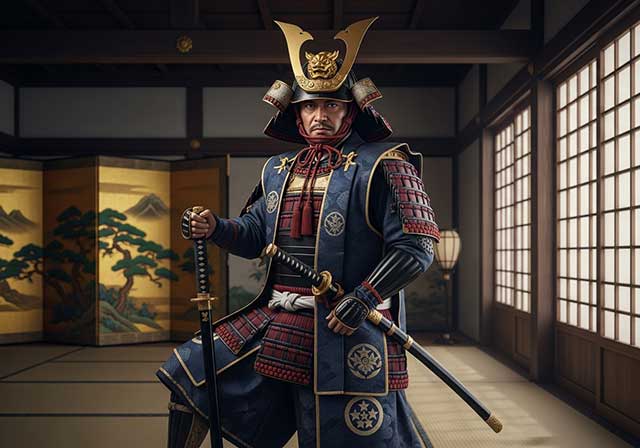
Sumimoto came from the Hosokawa clan: he was the biological son of Hosokawa Yoshiharu and at the same time the adopted son of Hosokawa Masamoto, the heir of Hosokawa Katsumoto, one of the principal instigators of the Ōnin War. Masamoto was homosexual, never married, and had no children of his own. At first he adopted Sumiyuki, a scion of the aristocratic Kujō family, but this choice provoked dissatisfaction and sharp criticism from the senior vassals of the Hosokawa house. As a result, Masamoto changed his decision and proclaimed Sumimoto as his heir, a representative of a collateral branch of the Hosokawa clan that had long been based in Awa Province on the island of Shikoku. Almost immediately after this, the boy became entangled in a complex and bitter web of political intrigue.
-
Honda Masanobu
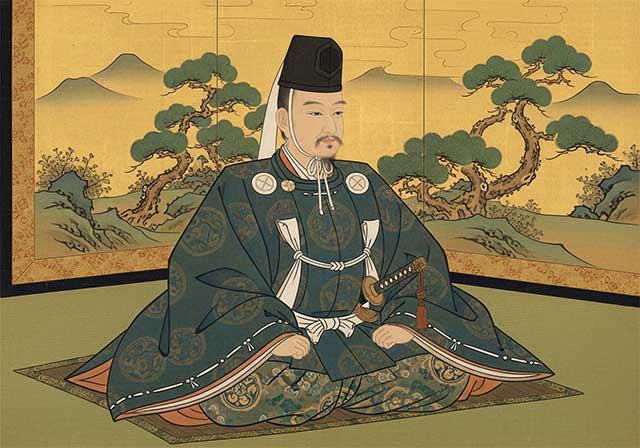
Masanobu initially belonged to the retinue of Tokugawa Ieyasu, but later entered the service of Sakai Shōgen, a daimyo and priest from Ueno. This shift automatically made him an enemy of Ieyasu, who was engaged in conflict with the Ikkō-ikki movement in Mikawa Province. After the Ikkō-ikki were defeated in 1564, Masanobu was forced to flee, but in time he returned and once again entered Ieyasu’s service. He did not gain fame as a military commander due to a wound sustained in his youth; nevertheless, over the following fifty years he consistently remained loyal to Ieyasu.
-
Honda Masazumi
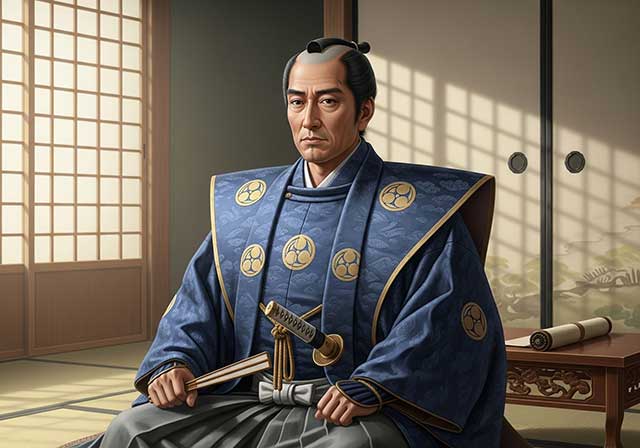
Masazumi was the eldest son of Honda Masanobu. From a young age, he served Tokugawa Ieyasu alongside his father, taking part in the affairs of the Tokugawa house and gradually gaining experience in both military and administrative matters. At the decisive Battle of Sekigahara in 1600, Masazumi was part of the core Tokugawa forces, a clear sign of the high level of trust Ieyasu placed in him. After the campaign ended, he was given a highly sensitive assignment—serving in the guard of the defeated Ishida Mitsunari, one of Tokugawa’s principal enemies—an obligation that required exceptional reliability and caution.
-
Hojo Shigetoki
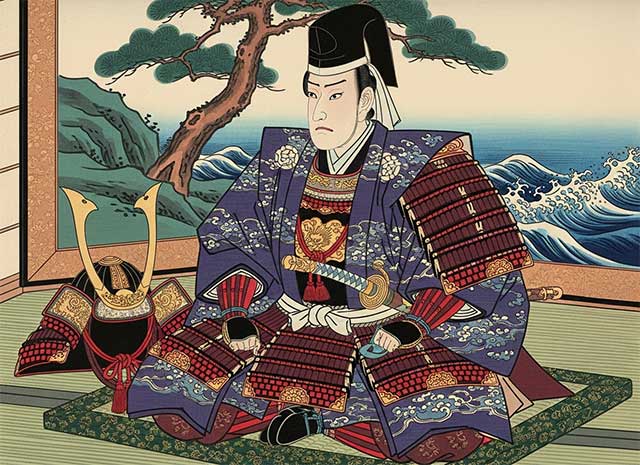
Hōjō Shigetoki, the third son of Hōjō Yoshitoki, was still very young—only five years old—when his grandfather Tokimasa became the first member of the Hōjō clan to assume the position of shogunal regent.

